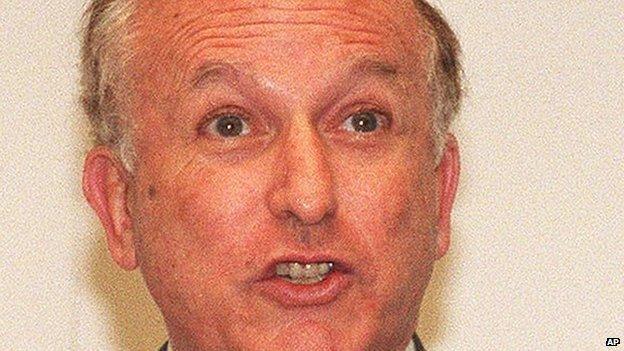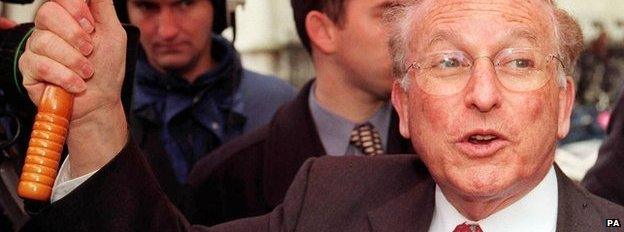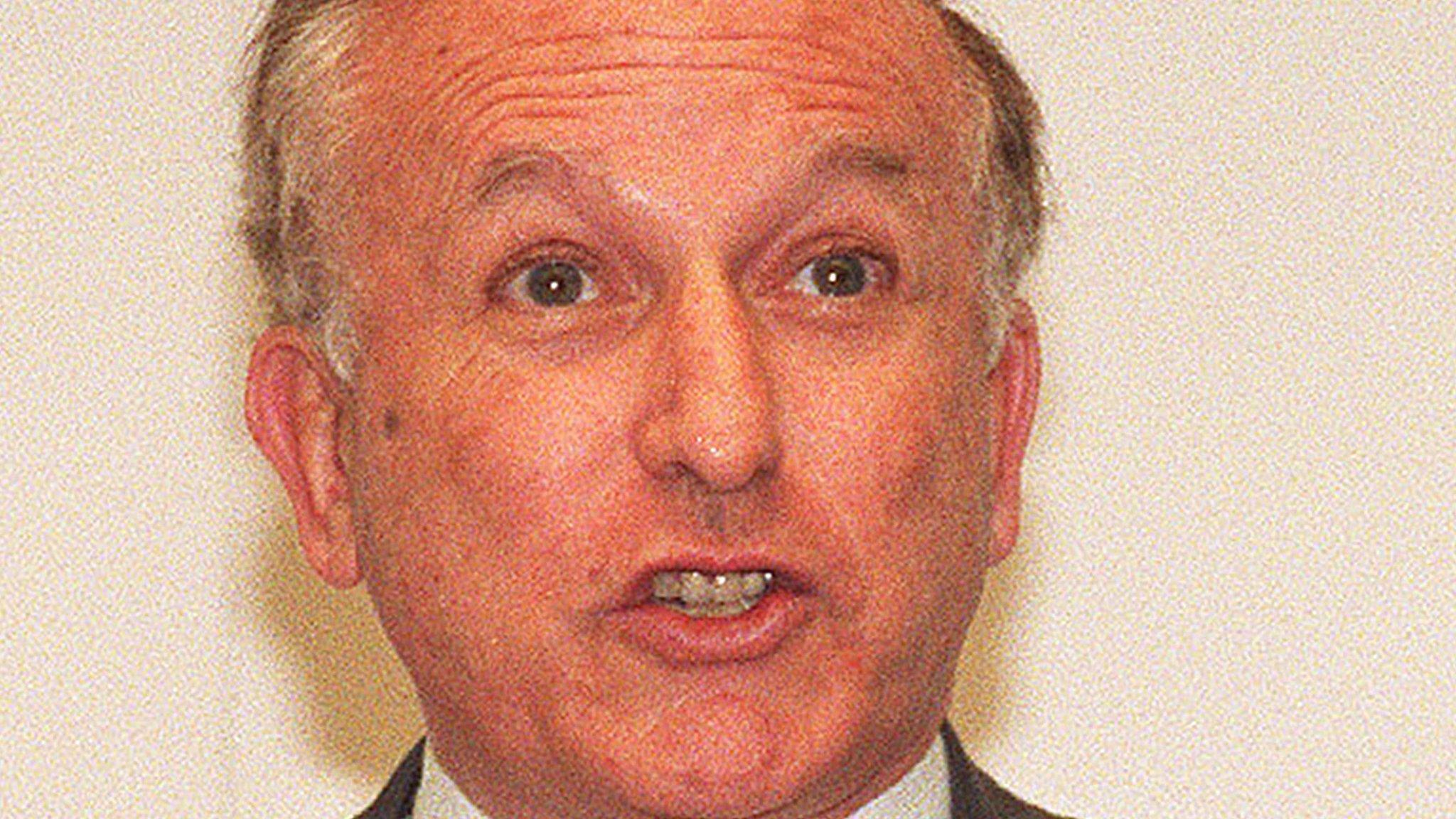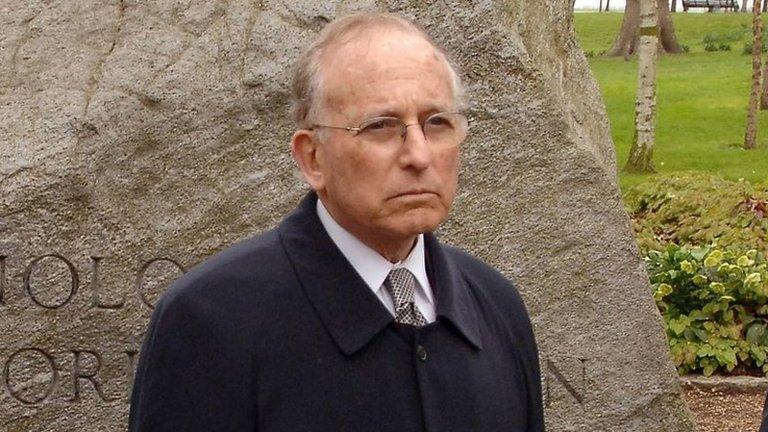High Court to rule on whether Janner court appearance is unlawful
- Published

A High Court judge is to consider whether it was unlawful to order Lord Janner to appear in court in person to face child sex abuse charges dating from the 1960s to the 1980s.
On Friday Westminster magistrates ruled the former Labour peer, 87, must appear in person for a hearing on the charges.
Lawyers acting for Lord Janner, who has dementia and denies the charges, argued he was too ill to attend court.
They applied to the High Court, which is due to hear the case on Thursday.
At the hearing on Friday it was acknowledged Lord Janner would not be able to understand proceedings because of his condition.
But Chief Magistrate Howard Riddle ruled that although Lord Janner did not have to play a part in the hearing, he was legally required to appear at court on Friday for a hearing on the 22 charges he faces.

Who is Lord Janner?

Born in Cardiff in 1928
Served in the Army and studied at Cambridge before becoming a barrister and then QC
Labour MP for Leicester North West and then Leicester West from 1970 until retiring in 1997, when he was made a life peer
Diagnosed with Alzheimer's disease in 2009
Suspended from the Labour Party but will remain a member of the House of Lords until his death or until he retires
Described by his family as a man of "great integrity" and "entirely innocent of any wrongdoing"

Lord Janner's lawyers argue he will suffer "considerable distress and harm" from his court appearance, which they say would violate his rights under Article 8 of the European Convention on Human Rights.
They are expected to apply to the court for an order that Friday's hearing at the magistrates' court should not go ahead, pending a judicial review of the decision that Lord Janner must attend.
The case is likely to ultimately be sent to a crown court, which will decide whether Lord Janner is fit to face a trial.
If the former Labour MP for Leicester is not deemed fit to plead there will be a so-called trial of the facts, where a jury will decide only if he committed the physical acts of abuse, with no finding of guilt and no conviction.
- Published7 August 2015

- Published29 June 2015
